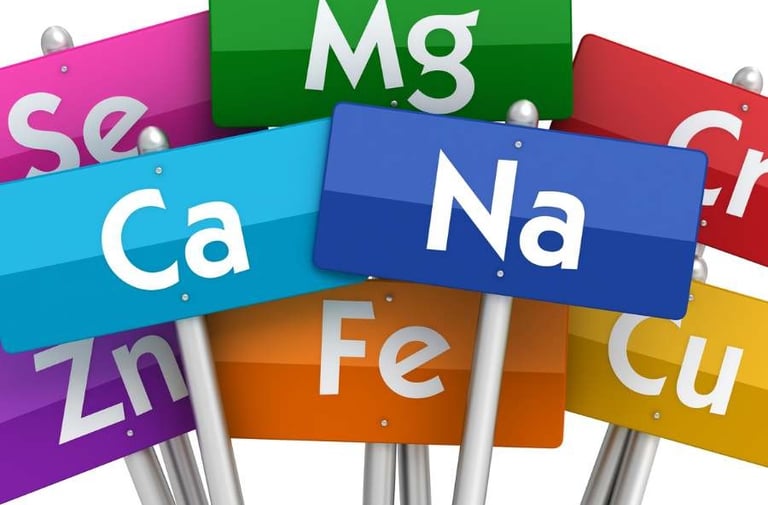Can I Eat Saffron Threads?
Discover the nutritional value and potential health benefits of saffron threads. Learn about incorporating saffron into your diet and potential risks to consider.
FAQ'S


Can You Eat Saffron Threads?
Yes, you can eat saffron threads in their dry form. However, for the best flavour and enjoyment, it's recommended to use them in food, drinks, and desserts. This article will provide you with a complete guide on how to choose and use saffron correctly.
Understanding the Benefits and Precautions
Saffron is extensively utilized in various cuisines, particularly Persian, Indian, and Mediterranean dishes, to enhance the taste of popular meals such as paella, biryani, and risotto.
If you're considering incorporating saffron threads into your culinary creations, it's crucial to understand their edibility. Although saffron is generally deemed safe for consumption, it's important to be well-informed about its advantages and potential risks to ensure responsible usage.
For those seeking top-quality saffron products that are certified, lab-tested, and infused with exceptional flavor, you can explore Saffronco's collection.
To delve further into the subject matter and gain insights into the nutritional value and health benefits of saffron, you may want to visit Saffronco's FAQ page. This comprehensive resource covers a wide range of topics related to saffron, from its properties to its various applications.


2. Minerals
Packed with essential minerals, saffron contributes significantly to overall health and well-being. Key minerals found in saffron include:
Potassium: Vital for maintaining proper heart function and regulating blood pressure. This mineral helps balance bodily fluids and supports nerve signal transmission.
Magnesium: Crucial for muscle function, nerve health, and energy production. Magnesium also plays a role in maintaining strong bones and a steady heartbeat.
Iron: Essential for the formation of red blood cells and hemoglobin. Iron helps combat fatigue and supports oxygen transport throughout the body.
These minerals collectively enhance the body's physiological functions, making saffron a valuable addition to your diet.


3. Bioactive Compounds
It contains several active constituents, such as crocin, picrocrocin, and safranal, which contribute to its medicinal properties.
Rich Antioxidant Content in Saffron and Its Role in Combating Oxidative Stress
Antioxidants are nature’s defence against oxidative stress, a major contributor to chronic diseases. Saffron stands out with its high concentration of antioxidants:
Crocin: This compound gives saffron its distinctive colour while providing neuroprotective benefits.
Saferanal: Known for its aroma, safranal also exhibits mood-enhancing properties.
Kaempferol: This antioxidant promotes heart health and has anti-inflammatory effects.
These antioxidants help neutralize free radicals in the body, reducing the risk of cellular damage and chronic conditions.
The Nutritional Value and Potential Health Benefits of Saffron
Saffron, derived from the Crocus sativus flower, is often celebrated for its unique flavour and vibrant colour. But beyond its culinary allure lies a treasure trove of nutritional benefits:
1. Vitamins
Saffron is particularly notable for its high content of essential vitamins, which play vital roles in maintaining overall health:
Vitamin C: Primarily rich in Vitamin C, saffron aids in immune function and skin health. This potent antioxidant helps protect cells from damage caused by free radicals, supports the production of collagen (a protein crucial for skin elasticity), and enhances the body's ability to absorb iron from plant-based foods.
Vitamin A: Saffron also contains Vitamin A, which is important for vision, immune function, and skin health. Vitamin A promotes the maintenance of healthy mucous membranes and skin, and it plays a critical role in ensuring proper eye function and vision.
Vitamin B6 (Pyridoxine): This vitamin is essential for brain development and function. It helps the body convert food into energy and aids in the production of neurotransmitters, which are chemicals that transmit signals in the brain.
By incorporating saffron into your diet, you can benefit from these vital nutrients that support various bodily functions.
Research on the Potential Health Benefits of Eating Saffron Threads
Investigating the Effects of Saffron on Alzheimer's Disease and Cognitive Function
Research into saffron's impact on cognitive health has shown promising results. Studies suggest that saffron's antioxidant properties can play a role in slowing down neurodegenerative processes:
A study published in the Journal of Clinical Pharmacy and Therapeutics found that saffron extract improved cognitive function in patients with mild-to-moderate Alzheimer's disease over a 16-week period.
The bioactive compounds crocin and crocetin have been observed to enhance memory retention and reduce inflammation in brain cells.
Regular consumption of saffron may thus offer a natural way to support cognitive health as we age.
Potential Benefits of Saffron in Managing Depression Symptoms and Enhancing Mood
Saffron’s potential as a natural antidepressant has garnered significant attention:
Clinical trials have indicated that saffron supplementation can be as effective as conventional antidepressants like fluoxetine (Prozac) in alleviating symptoms of mild to moderate depression.
The presence of safranal is believed to enhance serotonin levels in the brain, contributing to mood regulation.
A daily intake of around 30 mg of saffron has been associated with noticeable improvements in mood and overall well-being.
The Impact of Saffron on Libido, Sexual Function, and PMS Symptoms
Saffron’s influence extends to sexual health and reproductive functions:
In men experiencing erectile dysfunction, saffron has been shown to improve sexual performance. Studies reveal that taking 200 mg daily for ten days resulted in significant improvements.
For women, especially those suffering from premenstrual syndrome (PMS), saffron can alleviate symptoms such as irritability, mood swings, and discomfort. A study highlighted that consuming 30 mg per day during two menstrual cycles reduced PMS symptoms significantly.
These findings suggest saffron could be an effective natural remedy for enhancing libido and managing PMS symptoms.
The Role of Saffron in Weight Loss and Appetite Suppression
The battle against weight gain is a challenge many face. Saffron offers promising benefits in this area, making it a valuable addition to your dietary regimen.
Key Benefits of Saffron for Weight Management:
Appetite Suppression: One of saffron's most notable effects is its ability to reduce hunger pangs. Crocin, a compound found in saffron, helps curb excessive snacking by enhancing the feeling of fullness.
Mood Regulation: Emotional eating is a common obstacle in weight loss. Saffron's impact on serotonin levels can help stabilize mood and decrease the likelihood of stress-induced eating.
Antioxidant Properties: Rich in antioxidants, saffron aids in reducing inflammation, which is often linked to weight gain and metabolic issues.


How to Incorporate Saffron for Weight Loss:
Saffron Tea: Brew a few strands of saffron in hot water and consume it as tea. This simple beverage can be an effective way to harness its appetite-suppressing properties.
Saffron Extract Supplements: Available in capsule form, these supplements provide a concentrated dose of saffron's active compounds. Ensure you follow the recommended dosage instructions.
Infused Meals: Add saffron threads to your favorite dishes such as soups, stews, or rice. This not only enhances flavor but also integrates the health benefits seamlessly into your diet.
Interesting Fact:
Did you know that just 30 mg of saffron per day has been linked to reduced snacking and lower overall calorie intake? Studies indicate that this small amount can have significant impacts on appetite control.
Incorporating saffron into your routine may provide the extra support needed to achieve your weight loss goals while promoting overall well-being.
Incorporating Saffron Threads into Your Diet
Traditional Use of Saffron in Persian Cuisine
Saffron has always been a staple in Persian cuisine. It not only adds a beautiful golden colour to dishes but also brings out a distinct flavour that takes any meal to the next level. One popular example is Tahchin, a saffron-infused rice cake layered with chicken, yogurt, and eggs. Before being mixed into the dish, the saffron threads are soaked in lukewarm water for 5-7 minutes to release their full flavour.
Another beloved dish is Sholeh Zard, a saffron rice pudding made with rice, sugar, rose water, and almonds. The saffron threads play a crucial role in giving this dessert its signature color and aroma. Similarly, Kebab Barg often includes a saffron marinade that turns the beef or lamb into a work of art.


Tips for Purchasing High-Quality Saffron Threads
When buying saffron threads, it's important to prioritize quality. Here are some tips on what to look for:
Choose deep red threads with orange tips; this indicates high-quality saffron.
Avoid threads that are completely red or have yellow streaks, as these may be of lower quality.
Consider purchasing from reputable sources like saffronice.com, known for their strict quality control and authentic products. Always check for certifications like ISO 3632 grading, which ensures you're getting genuine saffron.
To maintain the freshness of your saffron threads:
Store them in an airtight container.
Keep them away from light and moisture.
By following these guidelines, you can preserve their potency and flavor for longer periods.
When saffron is discussed outside the kitchen, the difference between pure saffron vs saffron extracts often causes confusion for consumers.
Exploring Alternative Forms of Saffron for Consumption
If you're interested in trying out different ways to incorporate saffron into your cooking, here are some alternative forms to consider:
Ground saffron: This can be easily mixed into doughs and batters, making it perfect for baking. Even a small amount of ground saffron can turn ordinary cookies or cakes into gourmet delights.
Saffron extract: With its concentrated flavour, saffron extract is great for enhancing soups, sauces, or even cocktails. Just a few drops can add a luxurious touch to any dish.
Saffron powder: Similar to ground saffron, saffron powder is convenient to use and has a finer texture that blends smoothly into liquids like broths or teas.
By experimenting with these different forms of saffron, you'll discover a whole new world of culinary possibilities while savouring the benefits of this precious spice in various ways.
With these tips and insights, incorporating saffron threads and other forms of this spice into your diet becomes an enriching experience both gastronomically and nutritionally.
Moderation and Potential Risks of Eating Saffron Threads
Importance of Consuming Saffron Threads in Moderation
Saffron threads are packed with numerous health benefits, but moderation is key. Using too much saffron can lead to adverse effects rather than enhancing your well-being. Only a small amount, roughly 50-100mg or a pinch, is needed to enjoy its full spectrum of benefits.
Overconsumption can dilute its efficacy and potentially cause unwanted side effects. This makes it essential to stick to the recommended amounts. Soaking saffron threads in room temperature water for 5-7 minutes helps preserve its potent antioxidant properties, contributing to its effectiveness against oxidative stress.


Potential Risks of Excessive Saffron Consumption
While saffron has many health benefits, including combating oxidative stress, managing depression, enhancing libido, and alleviating PMS symptoms, consuming it in large quantities can pose risks:
Allergic Reactions: Some people might experience allergic reactions such as itching, rashes, or swelling.
Drug Interactions: Saffron can interact with medications like blood thinners or antidepressants, leading to adverse effects.
Excessive consumption can also lead to more serious issues such as:
Nausea and Vomiting: High doses may cause stomach discomfort and nausea.
Dizziness: Overuse can result in lightheadedness or dizziness.
Consulting a healthcare professional before adding saffron to your diet—especially if you’re on medication—is always a good idea. Balancing the intake of saffron threads while being mindful of these considerations ensures you reap all the health benefits without experiencing any negative side effects. For more information on the health benefits of saffron, you can refer to this WebMD article.
Final Thoughts on the Edibility of Saffron Threads
Eating saffron threads can be a delightful addition to your culinary repertoire. Whether you're sprinkling them over a dish or infusing them in water, saffron threads bring not only vibrant colour but also a unique flavour profile that can transform ordinary recipes into extraordinary experiences.
Using saffron threads in moderation is key to enjoying their benefits without any adverse effects. Remember, a pinch or 50-100mg is usually enough to impart its signature taste and aroma.
Tips for Enjoying Saffron Threads:
Soak in Lukewarm Water: To preserve its antioxidant properties, soak saffron threads in room temperature water for 5 to 7 minutes before adding them to your dishes.
Pair with Complementary Flavors: Saffron pairs well with ingredients like rice, seafood, and dairy. Try using it in recipes like paella, risotto, or even a simple saffron-infused milk.
Experiment in Desserts: Add a touch of luxury to your sweets by incorporating saffron into puddings, cakes, or even ice creams.
Considerations:
Mindfulness of Quantity: While saffron is packed with benefits, consuming it in large amounts can lead to unwanted side effects. Stick to the recommended amounts.
Quality Matters: Always opt for high-quality saffron from trusted sources to ensure you're getting the best product available.
With these tips and considerations, you can confidently explore the world of eating saffron threads and elevate your culinary creations.

